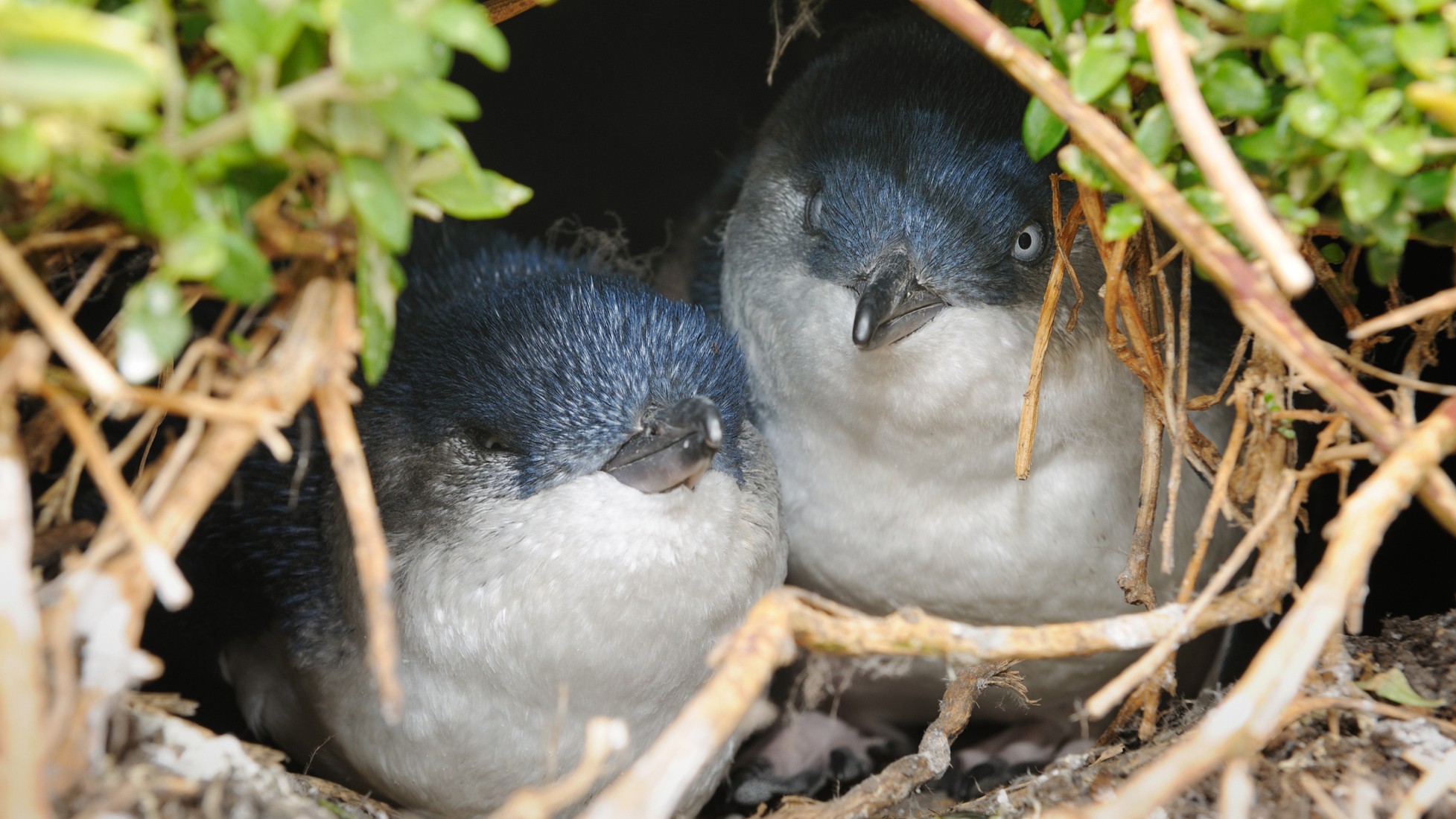Cheating little penguins are big on divorce, and other breeding secrets revealed
A little penguin colony in Australia struggles during years with high penguin divorce rates, but the divorcees could have more offspring in the long run if they find better mates, a new study finds.

Little penguins "divorce" their partners to search for better mates, but they waste so much time wooing their new love interests that the colony suffers, a new study has found.
There's a common misconception that penguins mate for life — their breeding behaviors are more complicated than that and vary between species. Little penguins (Eudyptula minor) often return to the same mate every breeding season, but some ditch their partners to seek new mates, which scientists call a "penguin divorce."
The new study, published Jan. 11 in the journal Ecology and Evolution, found that these divorce rates are a good indicator of the colony's overall health. The team led by researchers from Monash University in Australia looked at how environmental and social factors, including divorce, influenced reproductive success over 13 breeding seasons on Phillip Island in Australia, which is home to 37,000 little penguins — the world's largest colony.
Divorce (or lack thereof) was the best predictor of reproductive success, with more offspring produced during seasons with low divorce rates, according to the study. But that's not to say committed couples were faithful.
"In good times, they largely stick with their partners, although there's often a bit of hanky-panky happening on the side," study co-author Richard Reina, head of the ecophysiology and conservation research group at Monash University in Australia, said in a statement. "However, after a poor reproductive season they may try to find a new partner for the next season to increase their breeding success."
Related: Meet 'small diver': One of the tiniest penguins ever discovered
Researchers believe penguins divorce for various reasons, including reproductive failure and environmental stress, which can all make penguin pairs less stable. In the long-term, separation can enhance reproductive success by allowing the penguins to find more compatible or "higher quality" mates, the study authors wrote.
Sign up for the Live Science daily newsletter now
Get the world’s most fascinating discoveries delivered straight to your inbox.
However, problems arise for the colony when lots of penguins get divorced during the same season. Separated penguins must spend time searching for mates and engaging in courtship displays, which delays breeding. The study authors also wrote that there's a risk of "no breeding familiarity" and "reduced reproductive efficiency" during the early stages of a new coupling. In other words, new couples aren't as good at breeding and producing offspring as couples that have spent more time together.
Hundreds of divorces
For the new study, Reina and colleagues monitored a site called "Penguin Parade" on the west side of Phillip Island, where visitors can watch penguins waddle back from the ocean to their nests. The team documented almost 250 penguin divorces out of about 1,000 pairs included in the study, with higher divorce rates during less productive breeding seasons and lower rates during more productive breeding seasons.
The team found that other factors weren't as good or consistent at predicting reproductive success. The time penguins spent feeding impacted breeding, but in contrasting ways depending on whether the eggs had hatched, while environmental factors such as sea surface temperature had no significant effect during the study period. The authors noted that their results emphasize the need for an integrated approach to studying seabird reproductive success that considers individual behavior and social dynamics alongside environmental cues.
"Our results also suggest that monitoring divorce rates could offer a valuable, noninvasive tool for tracking reproductive trends in seabirds, particularly in populations facing fluctuating environmental conditions," the study authors wrote.

Patrick Pester is the trending news writer at Live Science. His work has appeared on other science websites, such as BBC Science Focus and Scientific American. Patrick retrained as a journalist after spending his early career working in zoos and wildlife conservation. He was awarded the Master's Excellence Scholarship to study at Cardiff University where he completed a master's degree in international journalism. He also has a second master's degree in biodiversity, evolution and conservation in action from Middlesex University London. When he isn't writing news, Patrick investigates the sale of human remains.









